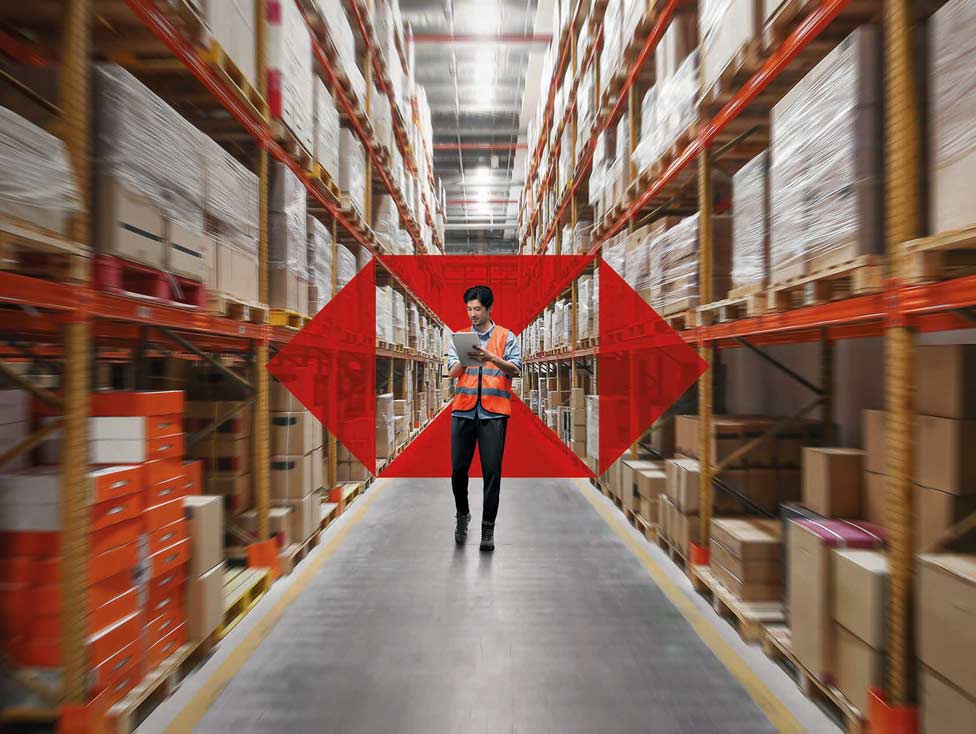- Article

- Growing my Business
- Enable Growth
- Expanding Abroad
ASEAN and Australia – ever closer ties
Trade between ASEAN and Australia flow in both directions, with economic ties growing closer.
Australia and the ten countries that form the Association of Southeast Asian Nations (ASEAN) enjoy economic ties that stretch back nearly half a century. In fact, Australia became the first of ASEAN’s ten dialogue partners way back in 1974 ,1 and the trading bloc is the country’s second largest trading partner. Recent developments suggest that relations look set to deepen over the coming years.
Building on strong foundations
At the first annual ASEAN-Australia Leaders Summit, held in October 2021, both sides underscored the importance of the relationship. Australia described how it would invest A$154 million into future cooperation, via a number of measures. 2
These include an ASEAN Futures Initiative that will support projects, with A$124 million of funding, to address complex challenges facing the region – such health and energy security, promoting the circular economy, and fighting crime. In addition, Australia aims to provide 100 scholarships for ASEAN students to help advance focal points of cooperation, like sustainable development.
Closer ties will build on strong foundations. In 2020, trade between ASEAN and Australia reached A$242 billion.3 There is also a free trade agreement between ASEAN, Australia and New Zealand.
Australian trade with ASEAN, along with the broader Asia region, will be boosted by the Regional Comprehensive Economic Partnership (RCEP), which came into force at the start of 2022. This is the world’s largest free trade agreement and the Australian government acknowledges that the agreement will “further strengthen Australia’s trade relationship with ASEAN at a crucial point in ASEAN’s economic development”.4
Australian companies are highly active across ASEAN. Not only are nine of the bloc’s members among Australia’s top trading partners, accounting for 58% of its two-way trade, 5 while 60 of the country’s largest 100 companies have subsidiaries in the trading bloc.6 The companies represent a wide range of industries – from mining and manufacturing to services.
The case for doing business in ASEAN is clear. The combined population of its member states is 660 million people, making it the third largest consumer base in the world, after China and India. 7 Sustained economic growth means that these young and digital savvy consumers are increasingly affluent and able to buy a growing range of goods. At the same time, the region has significant infrastructure needs, which require a steady supply of resources.
Destination Australia
The direction of trade and investment goes both ways, as ASEAN countries are a significant market for Australian goods and services. ASEAN is making significant investments in Australia, which is the world’s 14th largest economy despite accounting just 0.3% of the global population. In 2019, foreign direct investment from ASEAN to Australia was worth A$13.4 billion.8
These investment flows will likely grow in the short term, as Australia is predicted to become the world’s ninth most attractive destination for FDI, due to the country’s high level of political stability, transparent regulatory system, and sound legal economic resilience. Furthermore, the Australian economy is resilient, having quickly recovered from its first recession in 30 years.
Australia’s way of life is itself a selling point, attracting people from all over the world to enjoy its tourist destinations and study in its universities. It should be no surprise that education and tourism are Australia’s major service exports to ASEAN.9
Across the world, sustainability is becoming a key focus for both policymakers and the corporate sector. One survey found that 84% of Australian companies expect to increase sales as a direct result of embedding sustainability into their business practices. The Council of Australian Governments Energy Council has a vision to create a clean, safe and competitive hydrogen industry, making the country a global player in this industry by 2030.
Capturing opportunities
HSBC has a long history facilitating cross-border business in Australia, with 18% of the country’s companies using our services for their international banking needs. As one of the largest international bank in Australia, we are not only the second largest trade finance provider for corporates, but also the fifth largest transaction bank.
For Australian companies doing business in ASEAN and beyond, HSBC provides full support both locally and globally, realising the ambitions of leaders with an international horizon.
In both directions, economic links between ASEAN and Australia present exciting growth potential. Against the backdrop of continued economic growth, we remain committed to helping our clients open new opportunities along this dynamic trade corridor.
How HSBC can help
Learn about HSBC in ASEAN and find out how we have supported our customer’s growth as well as our in-market offerings.

Interested in expanding your business to ASEAN?
This document is prepared by The Hongkong and Shanghai Banking Corporation Limited (“HSBC”) and is for the exclusive use of the person to whom it is provided. It is intended for reference and illustrative purposes only. It does not constitute an offer or solicitation for, or advice or recommendation that you should enter into any transaction with HSBC or any of its subsidiaries or affiliates.
HSBC has based this Document on information obtained from sources it believes to be reliable but which it has not independently verified. All information contained in this Document (including without limitation, information about products, terms and conditions, pricing, forecasts, market influences and HSBC policy) is subject to change from time to time without any obligation on HSBC to give notice of such change to you.
HSBC makes no guarantee, representation or warranty and accepts no responsibility or liability for the contents of this Document and/or as to its accuracy or completeness and expressly disclaims any liability whatsoever for any loss howsoever arising from or in reliance upon the whole or any part of the contents of this Document to the maximum extent permitted by law. You are responsible for making your own evaluation about the products referred to in this document. HSBC recommends that before you make any decision or take any action that might affect you or your business, you consult with suitably qualified professional advisers to obtain the appropriate financial, legal, accounting, tax or other advice.
© Copyright. The Hongkong and Shanghai Banking Corporation Limited 2022, ALL RIGHTS RESERVED. No part of this publication may be reproduced, stored in a retrieval system, or transmitted, on any form or by any means, electronic, mechanical, photocopying, recording, or otherwise, without the prior written permission of HSBC.

